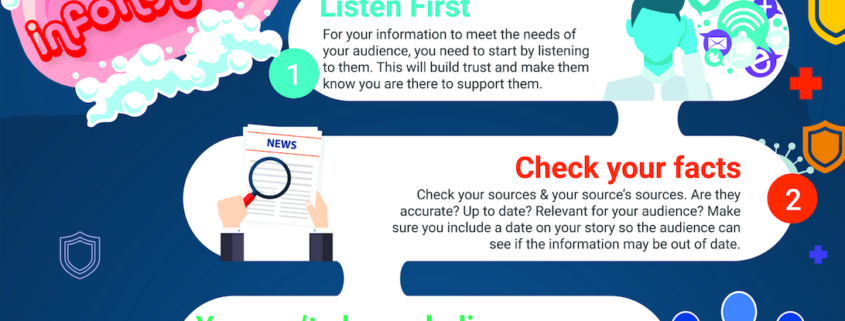#infohygiene in Times of Pandemics
The world is dealing with a new and challenging crisis with fast-evolving science, combined with a staggering flow of information, the first global “infodemic”.
And while we are forced to keep a distance from our fellow human beings, the virus has also shown us just how connected we all are. Information is forwarded and then forwarded again, breaking news with new cases, mitigation measurements, unforeseen effects and encouraging breakthroughs, have us jumping between devices and screens. Some suffer from information fatigue, others risk being left out of the loop, but everyone is equally struggling to navigate and find the right information that is relevant to their context.
Internews has been working on rumours, misinformation and disinformation for many years, including in the Ebola-response in 2014 where we launched our first rumour-tracking project, a methodology we continue to use, adapt and improve in humanitarian responses around the world. It also helps us grapple with fake news and disinformation when it infiltrates the mainstream media.
The information ecosystem is now truly global, which can be overwhelming. Local media are uniquely positioned to be a bridge between science and daily life. The media can make sense of the science for their audiences, translating facts into truly useful information. The media can also connect the questions from those living within their community, with the services and advice from those who are trying to improve their lives.
Misinformation and rumours thrive when people feel ignored, when the information they get does not take into account the reality they live in. Disinformation gets traction, when it manages to speak a language people prefer, rather than a language they understand, when it speaks to their concerns, their fears and their hopes.
We need to get our facts straight, that’s a basic rule of journalism. But more than just providing facts, we need to be sure we understand why a half-truth was believed in the first place.
There’s no magic formula, no cure, no vaccine against misinformation. But, with the following tips and tricks, journalists can play their part in slowing the spread of misinformation.
Source: #infohygiene in Times of Pandemics
Views 617







